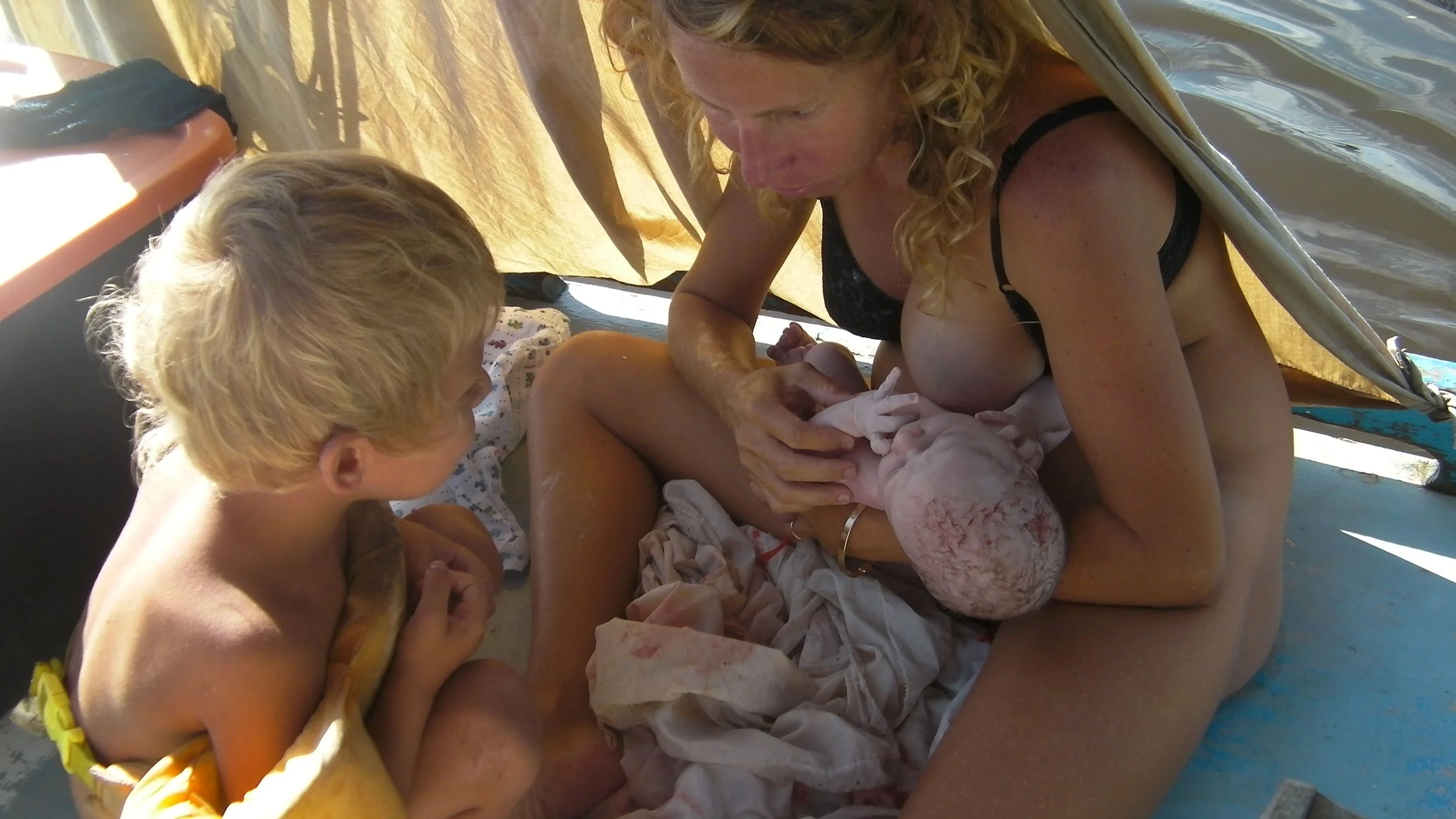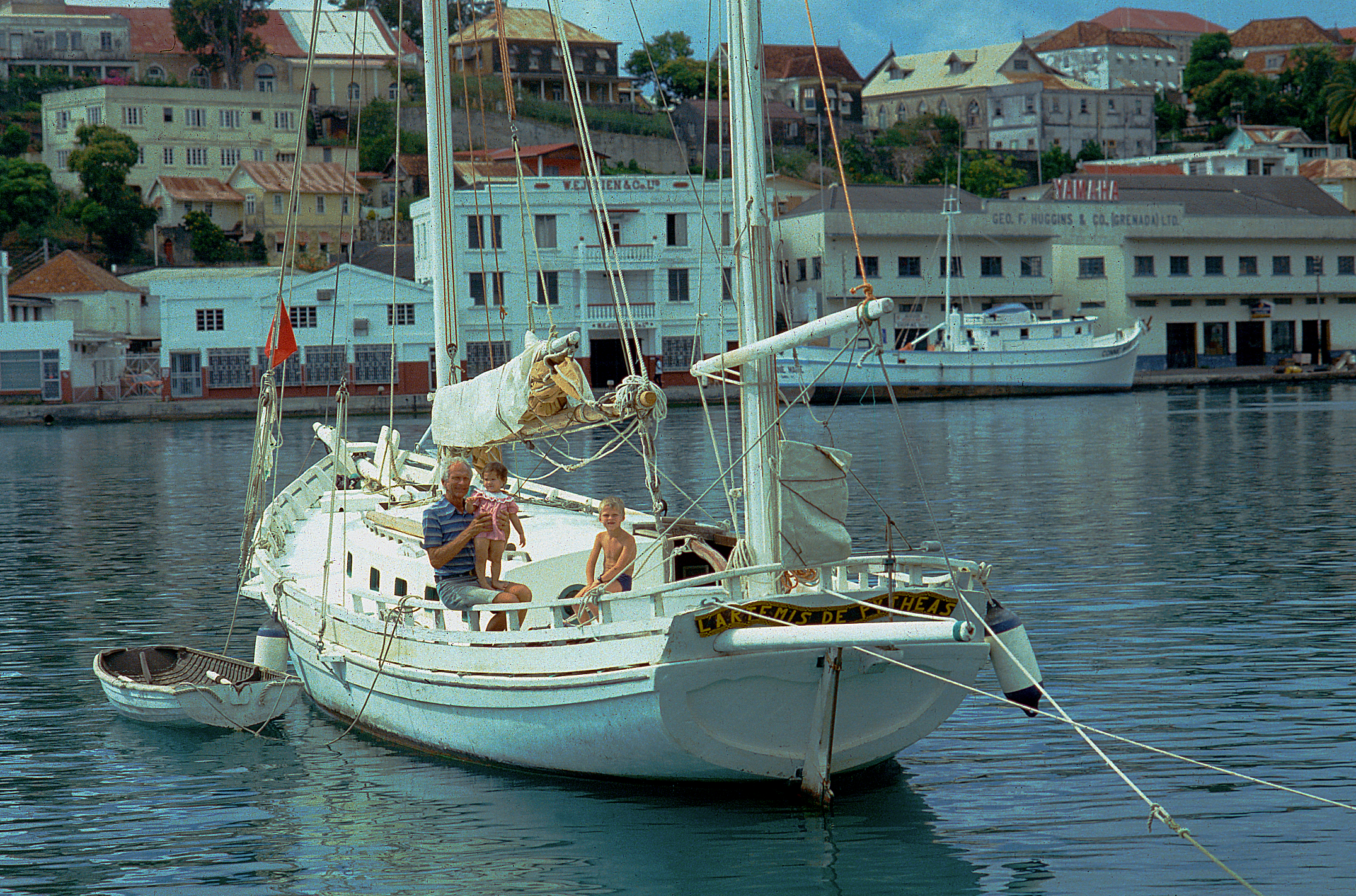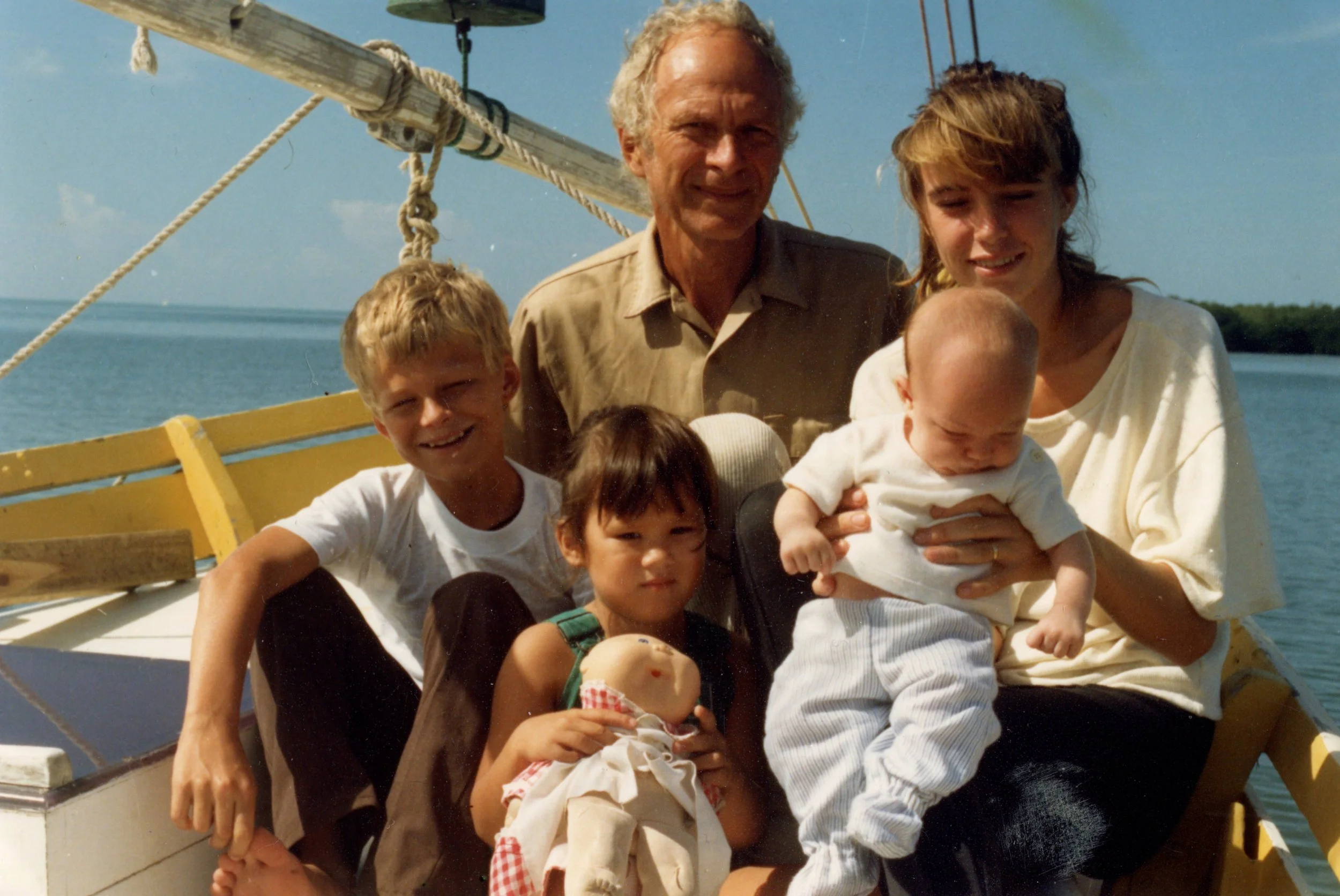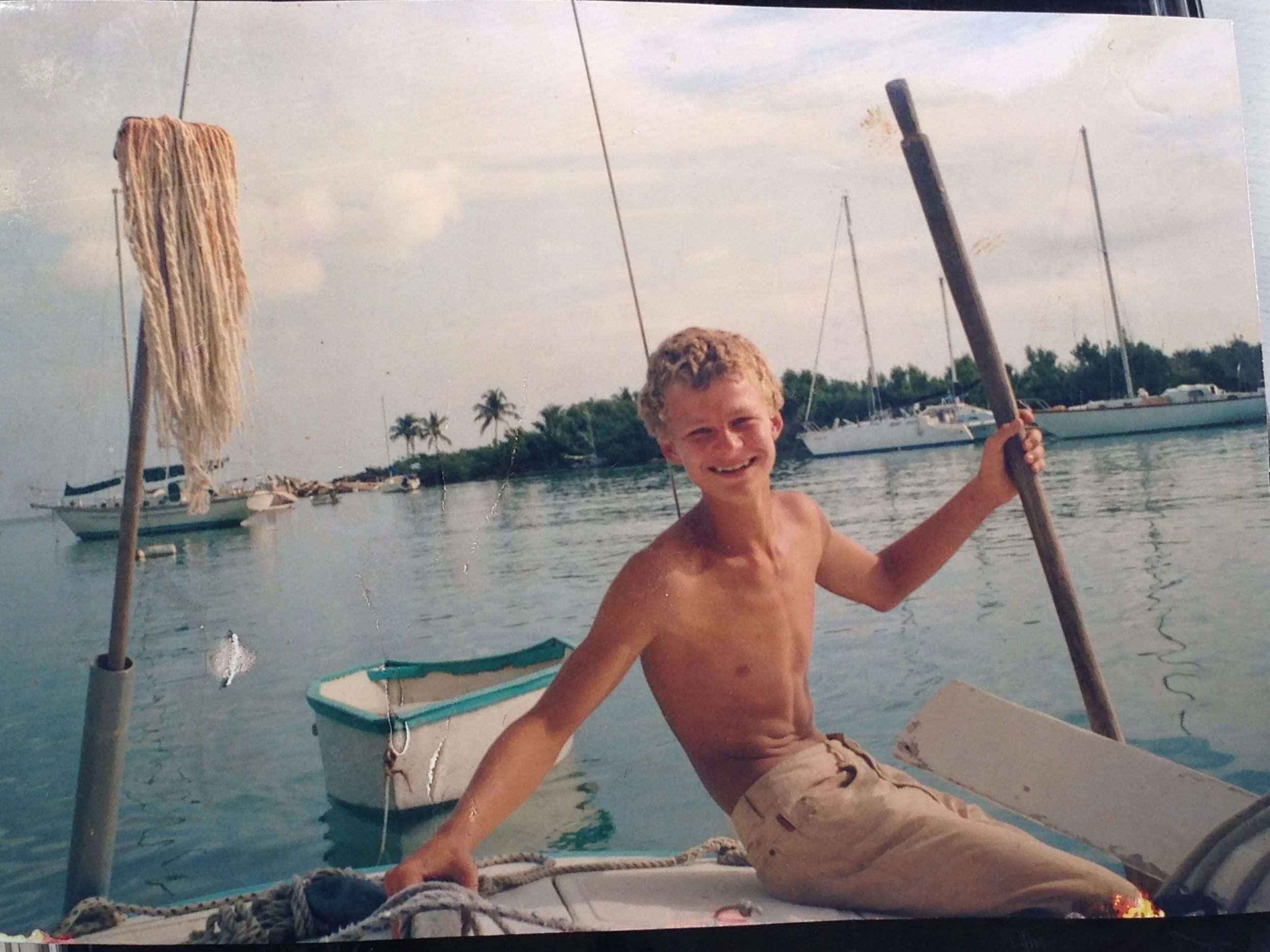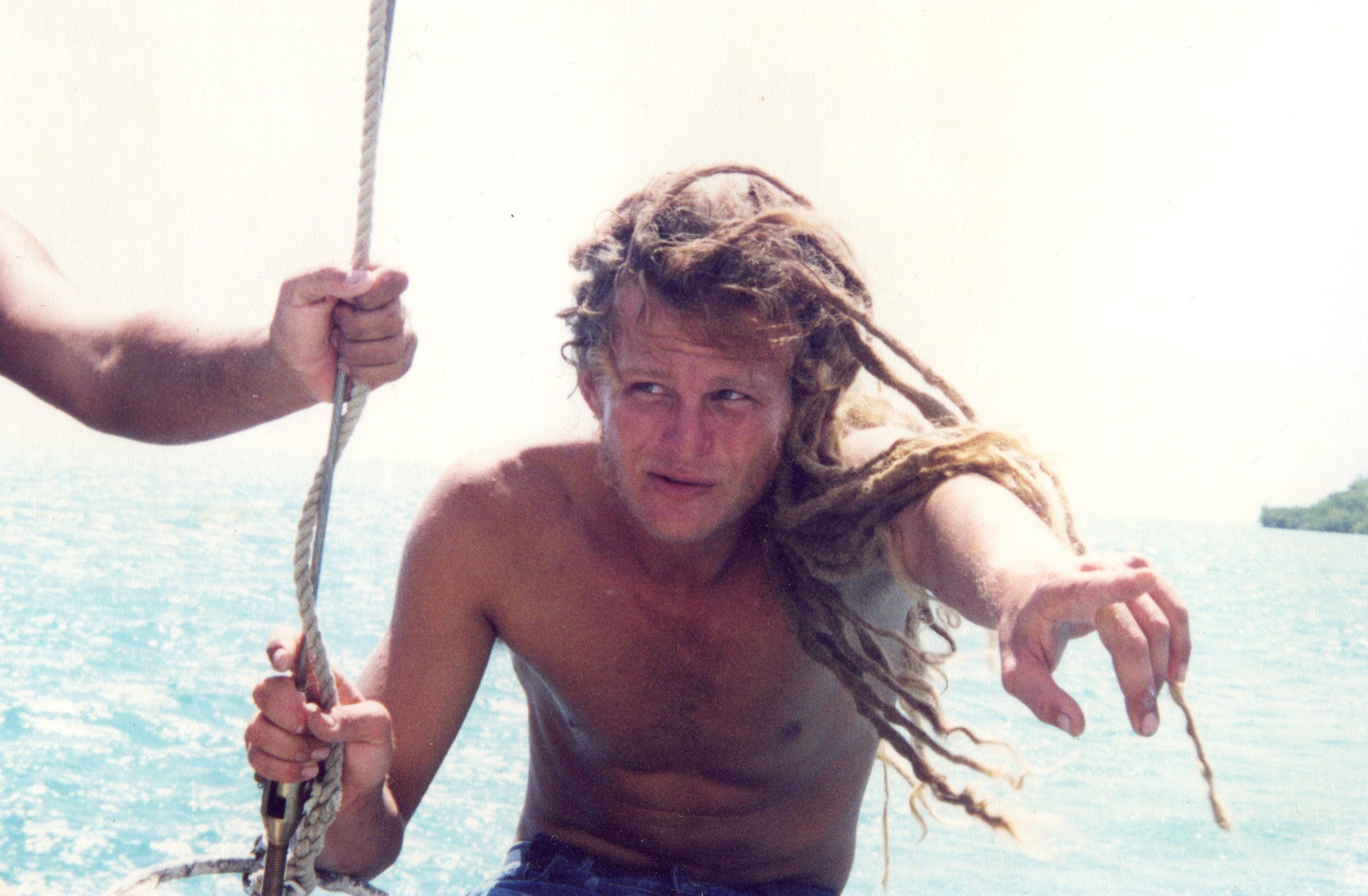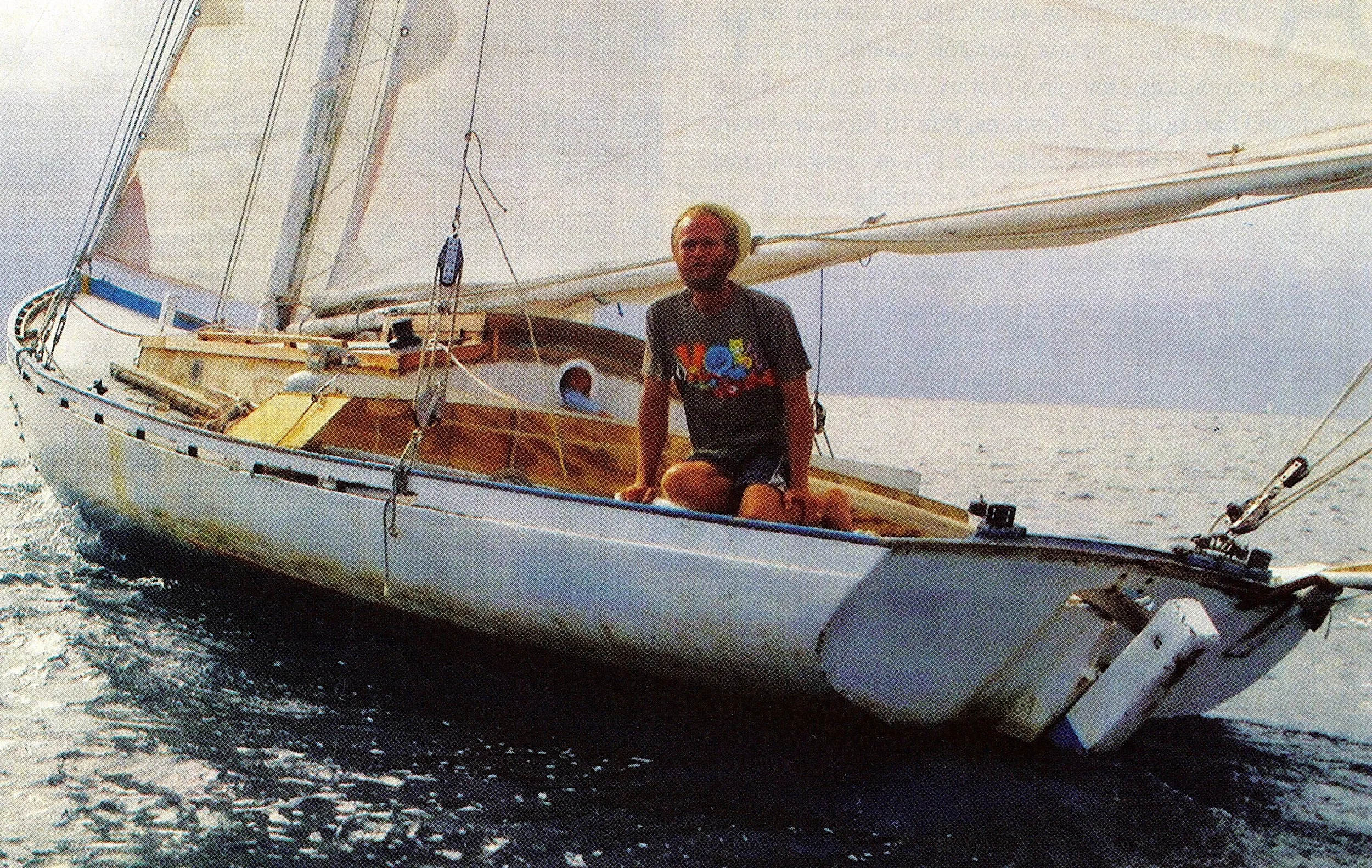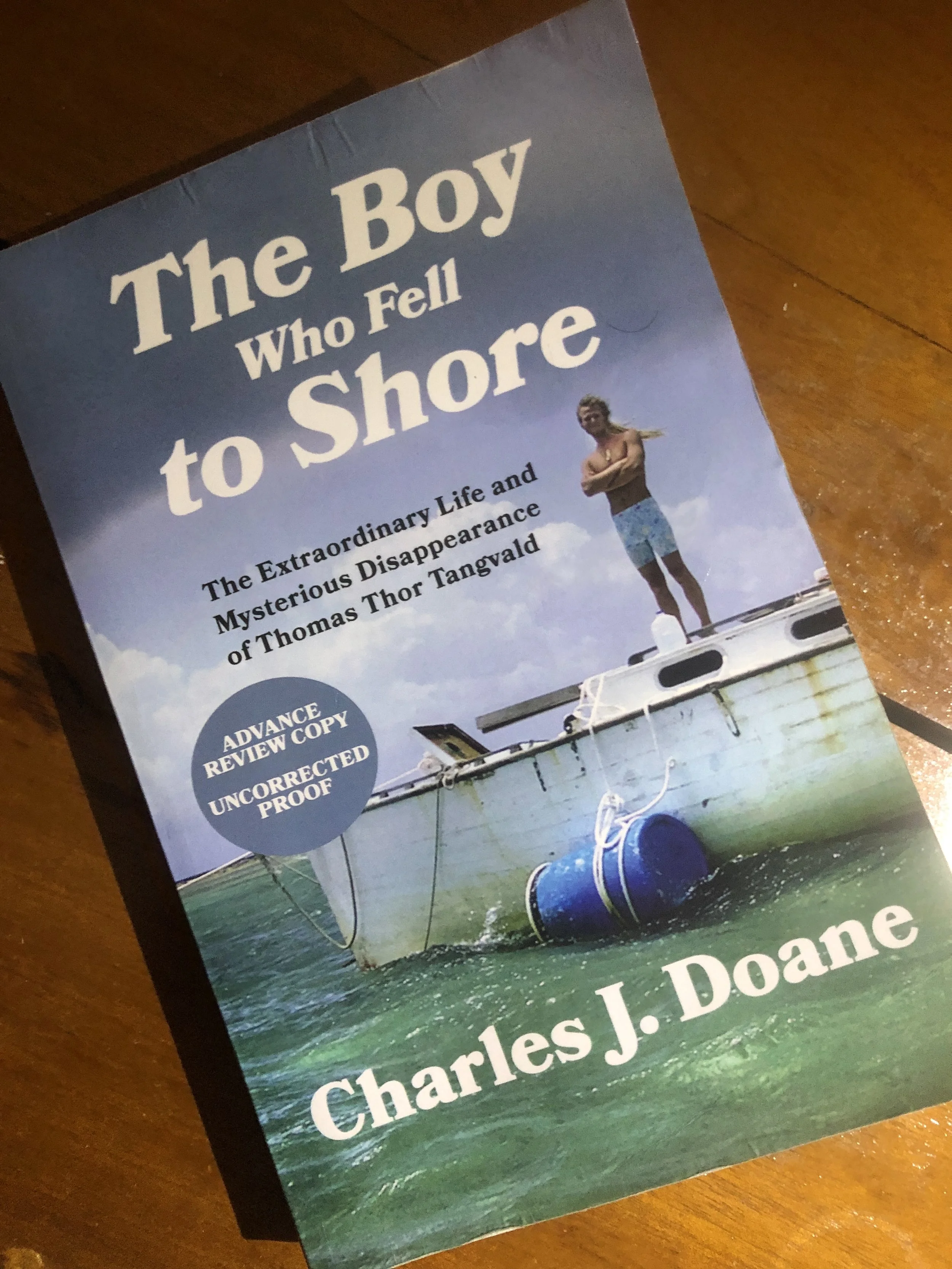The Boy Who Fell To Shore.
By Mark Chew
Christina, Thomas’ Wife with new baby Lucio.
“Thomas watched the surf pull L’ARTEMIS up and into the shore and could only scream in disbelief. This couldn’t be real; it must be some sort of nightmare.
Then he saw the towline that connected his boat to L’Artemis go slack. In the next instant he heard over the roar of the waves a sharp cracking sound as the mast on L’ARTEMIS broke in two and crashed down onto her deck. Instinctively he rushed to save himself. He jumped back into SPARTAN’s cabin, extracted the small surfboard he had stowed there, and leapt with it into the water a few seconds before his boat followed his farther’s into the vicious maw of the surf line.”
Charles J Doane’s book “The Boy Who Fell to Shore” tells the history of Thomas Tangvald and his farther Peter Tangvald, a well known and almost mythically minimalist, blue water sailor of the 1960’s, 70’s and 80s. The paragraphs above are perhaps the moment around which the book pivots, as Thomas is orphaned in a ship wreck which takes the lives of his father and little sister.
The boat that Peter built L’ARTEMIS DE PYTHEUS in Grenada.
Charles Doane tells Thomas’ life story based on diligent research, multiple first hand accounts and a personal depth of knowledge of the bluewater cruising scene. He has logged over 1000,000 miles offshore and has cruised extensively on the east coast of the USA, the West Indies, Spain, Portugal and West Africa. Throw in a few Newport Bermuda Races, the Fastnet Race and a Sydney-Hobart and you have an author well qualified to talk about the emotional trails of long term low budget cruising, as well as the physical challenges.
In recounting Thomas’ life story, I can’t help feeling that Doane, is having to make a huge effort to remain non-judgemental in regards to Peter the father. We get wafts of his distain through out the book, but it isn’t until the final chapter that he unleashes an assessment of his character that put him somewhere between a sociopath, a misogamist and a megalomaniac.
The Tangvald Family
Doane says
….Peter Tangvald clearly failed to adhere to a core ethic of the bluewater tribe… really of any tribe. He betrayed the next generation, his own children and he harmed others, quite badly in pursuit of his own selfish dream. In considering how I feel about him now, first I think […] that you had to respect the man even if you didn’t like him. But I wonder now if Peter Tangvald really is worthy of respect, in spite of his accomplishments, his great skill as a bluewater sailor, and his austere, undiluted exhalation of personal freedom. It has become a common dilemma in this age of tell all biography. Once we know a celebrated accomplished figure well enough to see the ugliness within them must we forgive and look up to them nonetheless?
Thomas in Fajardo
The author’s judgement of Thomas is more nuanced. Again we are presented with a heavily flawed character. Fascinating, highly intelligent, charismatic… but at the same time an alcoholic, a drug user, naive beyond belief, self obsessed, occasionally arrogant and insecure. But here we must step back and give Thomas more leniency, as Doane explains here…
Thomas' childhood, from the age of three, all the way up to 15 was a forest of traumatic events and circumstances. He was an eyewitness as his mother was shot to death and murdered by pirates. He was again an eyewitness at close quarters, as his first step mother was badly beaten and nearly raped by thieves in Tunisia. This woman subsequently beat and abused him.
Ultimately, she was lost overboard, and Thomas assisted in searching for her in vain for extended periods during his early boyhood, he was kept locked in a cabin aboard his father's boat. and was sometimes left alone crying for hours.
He was frequently bullied and ostracised in the many different schools he attended. He had no mattress and only a strong mat to sleep on at night, and was perhaps at times undernourished. And finally, there was the awful denouement. He was the sole survivor of the ghastly shipwreck that killed his father, and sister.
Thomas Tangvald
Doane goes on to explain that Thomas probably lived most of his live suffering from PTSD, and even if this doesn’t excuse him, it certainly explains many of his behaviours and addictions.
Reduced to its book blurb essence, the story of Thomas Tangvald is that of a young man who destroyed himself striving to follow in his father's footsteps. The great irony of his life was that he was unable to see nor comprehend the negative influence of his father. Rather, Thomas held his father as a victim of tragedy and thus, empathised with him. What Thomas failed to grasp that his father was in fact an agent of tragedy.
OASIS, the boat that Thomas sailed away on never to be seen again.
There are plenty of eccentric, minimalist, bluewater sailing heroes out there, if we are looking for someone to idolise. Bernard Moitessier is the first to spring to mind for me. Perhaps Johnny Wray, Frank Wightman, Erling Tambs, David Lewis are others. Personally I don’t think Peter or Thomas Tangvald deserve to be in this exalted company. Charles Doane has written a wonderful book but its a book about failure and depravity, rather than any great triumph.
CHARLES J DOANE’S THE BOY WHO FELL TO SHORE is Published by Latah Books.
Available 25th October 2022 $19.95 USD www.latahbooks.com to order your copy.

